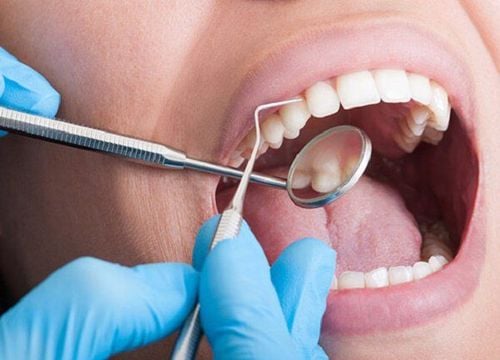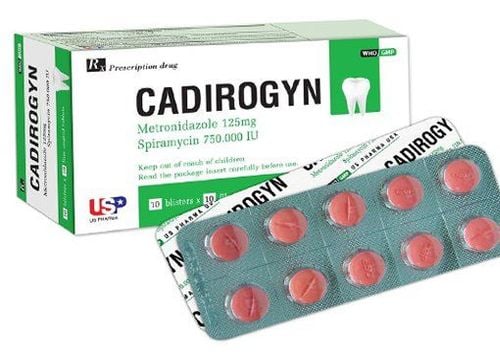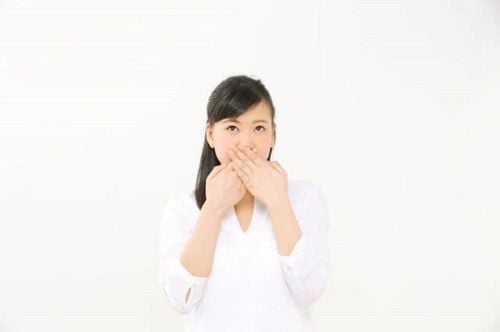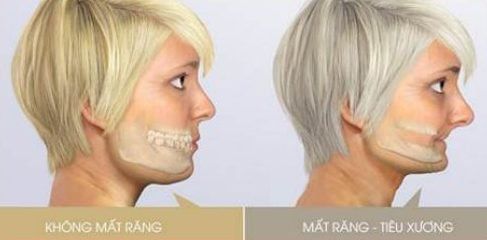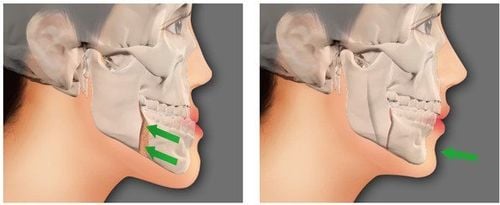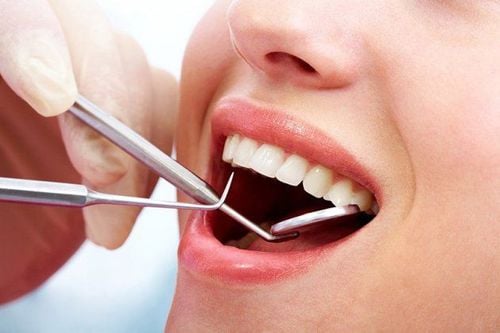This is an automatically translated article.
Tartar is a dental technique that helps remove food plaque after the process of accumulation and hardening on the teeth. After removing tartar, tooth enamel becomes sensitive, so it is necessary to have a suitable diet and care regimen.1. What is tartar?
Tartar, also known as tartar, is plaque accumulated and calcified by inorganic salt compounds in saliva and soft deposits. Tartar can be food debris or minerals in the mouth,... Over time it becomes hard and adheres to the tooth surface or under the gum line.Tartar has two types: normal tartar and serum tartar. Tartar will usually be milky white or light yellow. After a period of time on the surface of the teeth and gums, tartar will cause gingivitis. If left untreated, it will cause bleeding gums, blood will soak into that tartar and turn a reddish brown color called serous tartar.
Tartar that accumulates for a long time will thicken, causing bad effects on oral health such as:
Bad breath Bleeding gums, sensitivity when eating Gum recession exposes the roots of the teeth Causes diseases such as: periodontitis, gingivitis, oral mucositis, pharyngitis, alveolar bone loss, pulpitis,... Even causing teeth to loosen and lose teeth. Therefore, getting tartar is absolutely necessary to ensure a strong tooth and prevent oral health problems that can occur due to tartar.
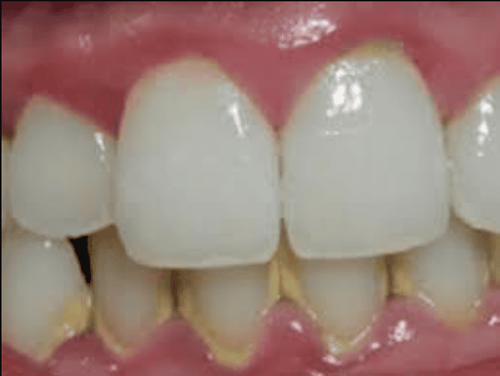
Cao răng hay còn được gọi là vôi răng là những mảng bám được tích tụ và bị vôi hóa bởi các hợp chất muối vô cơ trong nước bọt và cặn mềm
2. After getting tartar, do you have to eat anything?
Taking tartar is a dental technique that helps remove food plaque after the process of accumulation and hardening on the teeth. After removing tartar, you can still eat and live normally. However, after removing tartar, enamel weakens, teeth are more susceptible to plaque faster and create a feeling of sensitivity. Therefore, it is necessary to take care of teeth properly and have a reasonable diet. Some foods that should be used when removing tartar include:Drink lots of filtered water, clear drinks Increase fiber: Vegetables and fruits that contain a lot of fiber can help strengthen teeth, such as soups. cauliflower, vegetables, lettuce, cucumber, carrot,... Using raw milk and dairy products: raw milk as well as dairy products can prevent plaque. In addition, milk contains a lot of calcium that helps to increase the regeneration of tooth enamel. Provide vitamins: Using fruits and vegetables such as apples, bananas, oranges, ... helps provide a large amount of vitamins to help strengthen teeth and prevent tartar formation. Besides, oral hygiene is also very important:
Brush teeth regularly 2 times / day: Clean teeth in the morning after waking up and at night before going to bed Brushing properly: Brush teeth from top to bottom, brush in a circular motion. Do not brush your teeth horizontally, because it does not work to clean between the teeth but also wears down the roots. Each time you brush your teeth, you should only brush for about 2 minutes, avoiding brushing too long will affect the enamel. Use a soft-bristled brush: A soft-bristled brush of a moderate size will help easily reach areas of the oral cavity. Therefore, the teeth will be cleaned deeply, especially the molars, the teeth located deep inside the mouth. Flossing: Using dental floss after each meal will clean between the teeth and avoid brushing several times a day that damage tooth enamel. Using physiological saline to clean the oral cavity: Along with flossing, rinsing with physiological saline will help keep the oral cavity in a clean state. Visit the dentist for regular check-ups every 3-6 months to determine the specific status of your teeth

Súc miệng bằng nước muối sinh lý sẽ giúp khoang miệng luôn trong trạng thái sạch sẽ
3. Some notes to avoid after removing tartar
To be strong, avoid tooth sensitivity, after removing tartar, it should be noted:Do not smoke: smoking after removing tartar will make teeth yellow and dull. At this time, the enamel of the teeth is eroded and most easily stained. Do not bleach teeth: After removing tartar, enamel and gums are not stable, absolutely do not whiten teeth because it will make teeth sensitive and irritate teeth and gums. Avoid foods containing a lot of sugar and sweeteners such as: Confectionery, chocolate, ... Because this food is the main cause of tooth decay and gum infection. Avoid using carbonated, alcoholic beverages and colored water: Because they easily stain teeth. Do not eat foods that are too hot or too cold, too spicy: make teeth sensitive, causing sensitivity. It can even cause chipped teeth, receding gums and death of the pulp.
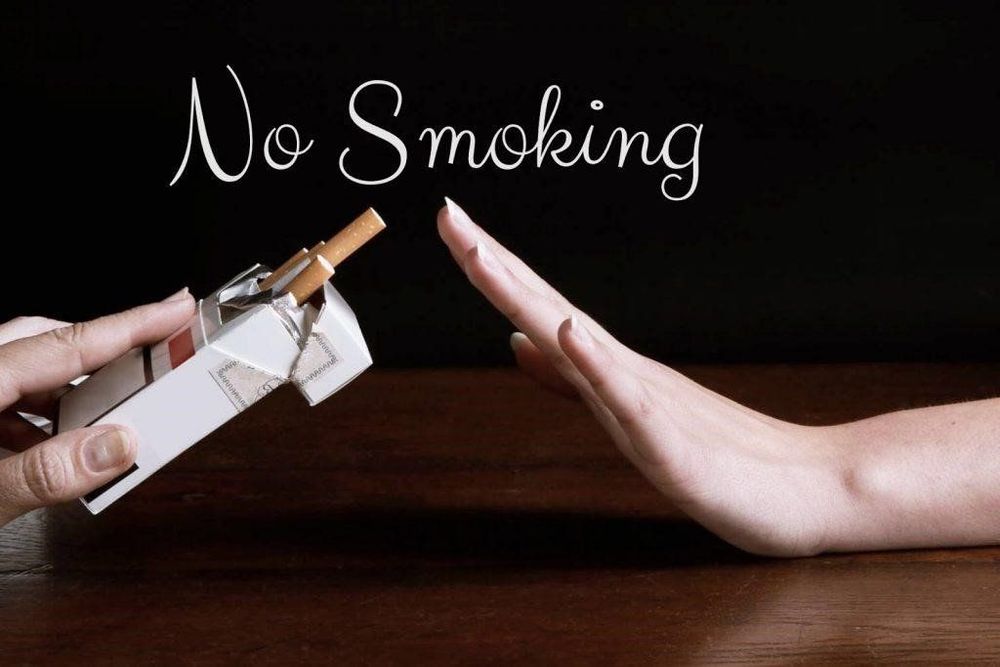
Việc hút thuốc lá sau khi lấy cao răng sẽ khiến răng ố vàng và xỉn màu
After removing tartar, enamel weakens, teeth are more susceptible to plaque faster and create a feeling of sensitivity. Therefore, it is necessary to take care of teeth properly and have a reasonable diet. In addition, it is necessary to have regular dental check-ups every 6 months to detect dental problems early and take appropriate measures.
Please dial HOTLINE for more information or register for an appointment HERE. Download MyVinmec app to make appointments faster and to manage your bookings easily.
SEE MOREHow does tartar form? Scaling: What you need to know Harm of tartar (calcium)




